- Probiotics as part of the human immune system, Hrubiško M., 2012.
- solen.sk - PROBIOTICS, Michal Mego, National Institute of Oncology, Bratislava
- solen.sk - DIFFERENTIAL DIAGNOSTICS OF VAGINAL FLUOR, Barbora Gulánová, Mária Šimaljaková, Dermatovenerology Clinic of the Faculty of Medicine, Bratislava
- ncbi.nlm.nih.gov - Oral supplementation with Lactobacillus delbrueckii subsp. bulgaricus 8481 enhances systemic immunity in elderly subjects
What are lactobacilli and what effect do they have on digestion?

Why is Lactobacillus beneficial for the body? In which foods can it be found naturally? Can lactobacilli affect the course and symptoms of various diseases?
Article content
You also often ask: What are lactobacilli for and what are their effects?
Lactobacilli and probiotics - what are the best or natural sources?
Humans do not naturally live in a sterile environment. We find microorganisms right in our bodies that are very beneficial to us.
We consume foods that are naturally populated with microorganisms, especially fermented foods.
Human life is linked to microorganisms. It evolves and adapts to their presence, so some are essential for life.
The human microbiome is the characteristic collection of microorganisms of a particular individual.
The digestive tract is the largest reservoir of microorganisms, as is lymphoid tissue.
Human immunity is therefore directly dependent on the state of the digestive tract.
Advances in the field of medicine are providing new insights that highlight the importance of the human microbiome and its influence on a number of functions in the body.
The gut microbiota changes from birth and builds up over time.
A child born by caesarean section has a different microbiota than a child born naturally, per vias naturales.
The colonisation of children born by caesarean section is more determined by the environment than by the mother's microflora.
During the development of the newborn, modulation of the intestinal microflora begins. It affects the susceptibility of the intestine to disease and has a unique long-term effect on the quality of the immune system.
Lactobacilli and bifidobacteria make up 90% of the microflora of exclusively breastfed newborns.
Subsequently, the microflora changes due to diet, eating habits, lifestyle, metabolic changes and ageing.
The development of the individual microflora, its microbial colonization has an impact on future human health.
Even some scientists comment on the connection between human microflora, probiotic bacteria and longevity.
Lactobacilli are part of the microflora and significantly affect our health.
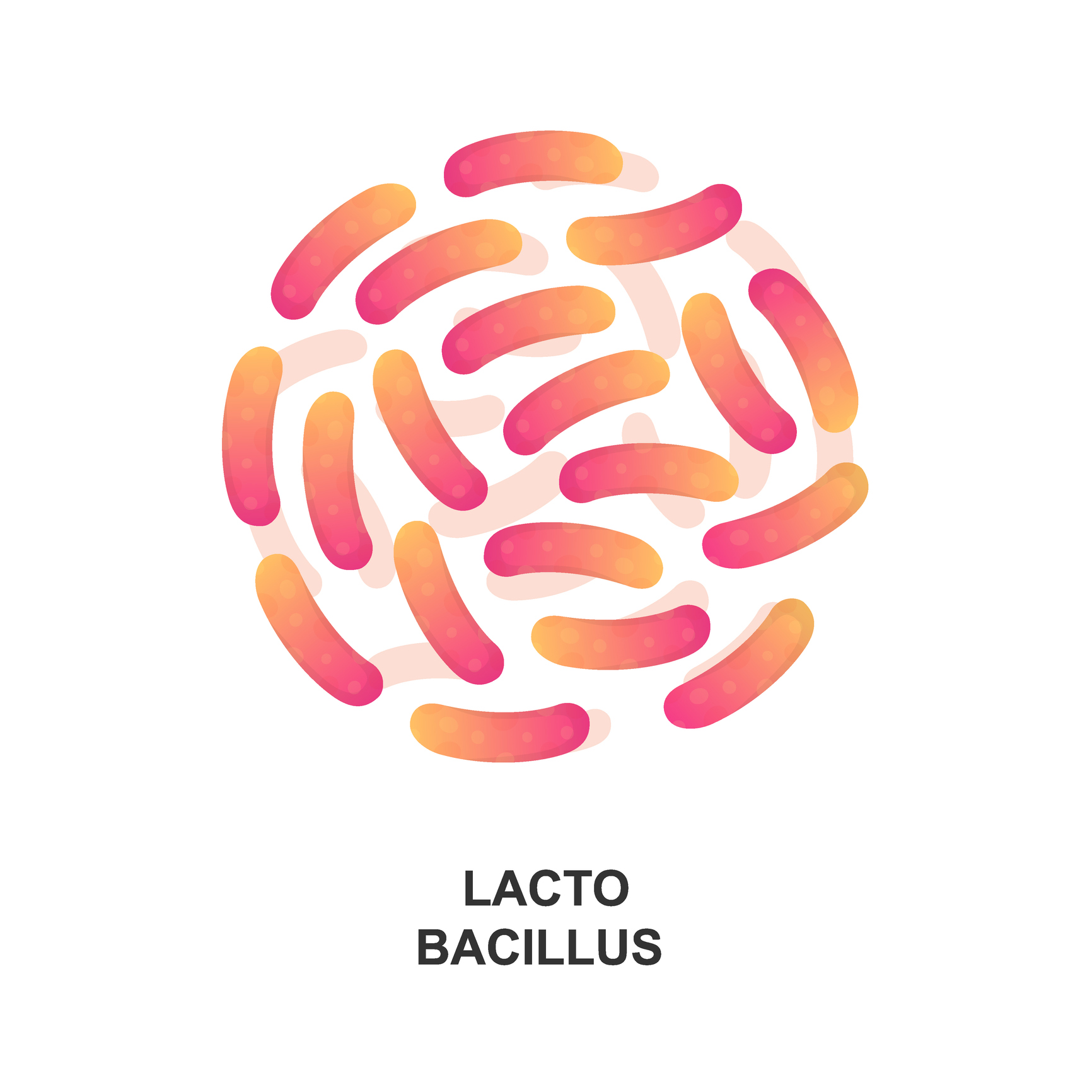
What is Lactobacillus?
- A living microorganism
- It belongs to probiotic bacteria (microorganisms living in the digestive tract with proven positive effects on health)
- Helps build the body's natural defences
- Beneficial for our health
It belongs to the so-called Gram-positive non-sporulating bacteria. Gram staining is one of the basic staining of bacteria in microbiology, according to which they are divided into Gram-positive and Gram-negative.
Lactobacilli are found in the intestines, especially in the vaginal mucosa of healthy women of childbearing age. A mixture of lactobacilli is called a Döderlein lactobacillus, e.g. Lactobacillus acidophilus.
In general, lactobacilli are considered non-pathogenic. In certain cases, they can be potentially pathogenic and the source of some infections.
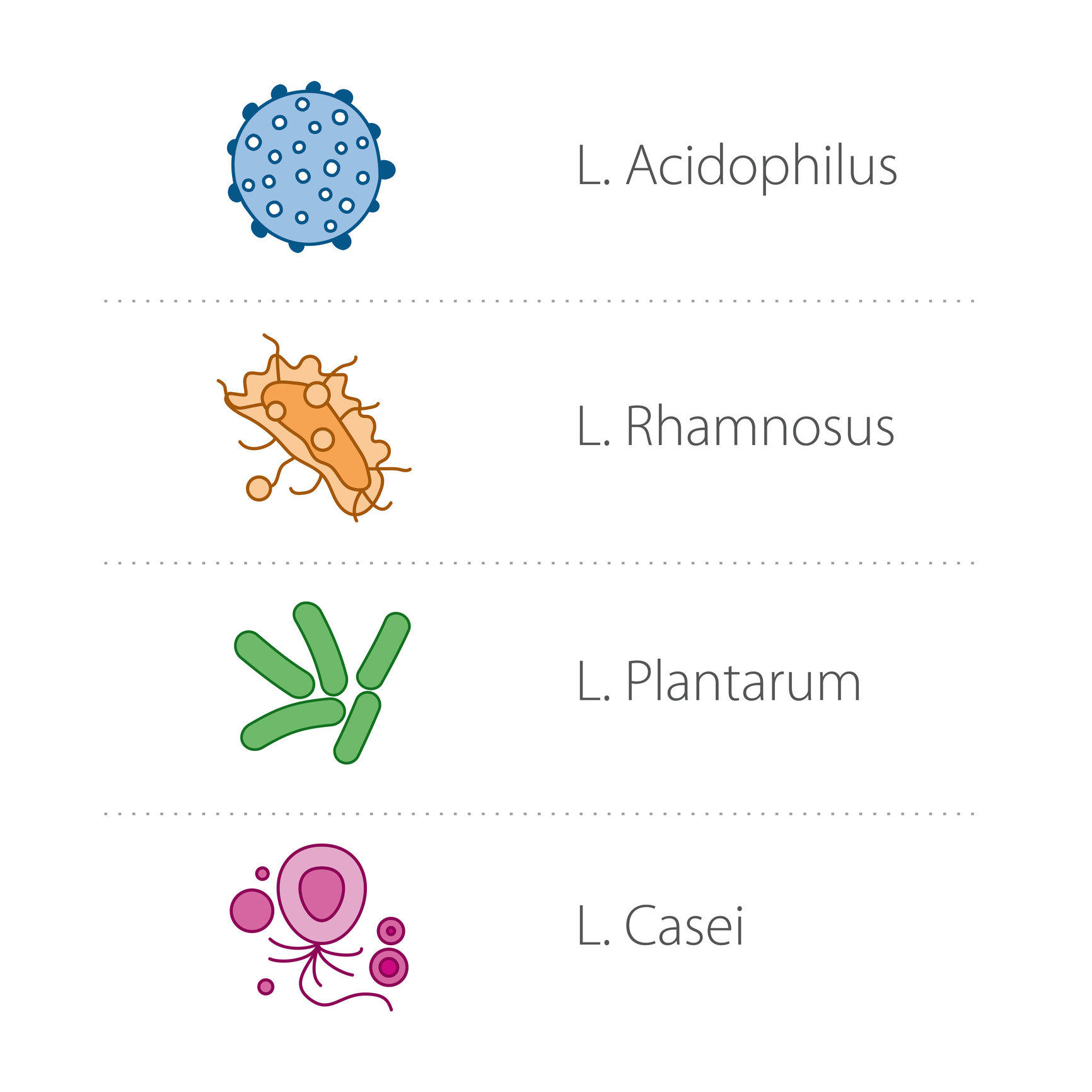
Why are lactobacilli beneficial?
- They help fight other pathogens
- They help maintain a physiologically low pH in the vagina
- Breaks down glucose and lactose into lactic acid, preventing the growth and overgrowth of yeast and putrefactive bacteria
- Provides a protective barrier against diarrhoea
- Promotes proper digestion
- Improves absorption of certain minerals
Where can we find lactobacilli?
Lactobacilli occur naturally in foods and commercial products that contain them as probiotic bacteria. In the food industry, the lactobacilli content of products varies depending on the method of production, freshness of the product and storage.
The amount of lactobacilli decreases with the length of storage.
- Fermented dairy products, e.g. yoghurt, kefir, mould cheeses, brynza (an excellent source is genuine unfermented Slovak brynza)
- sauerkraut
- pickled cucumbers
- probiotic tablets
- vaginal tablets, suppositories, tampons containing lactobacilli directly, which are inserted into the vagina
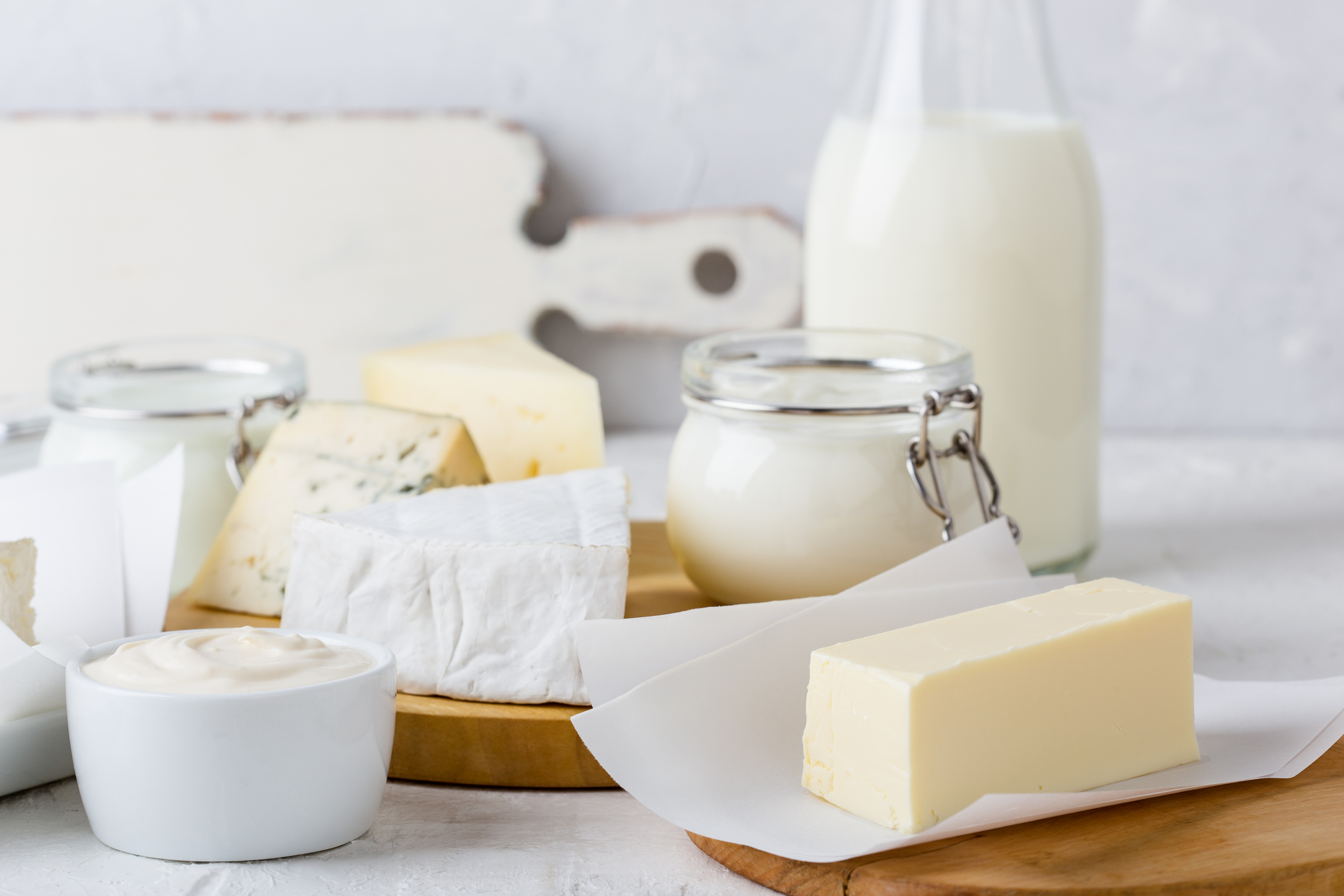
The process of lactic acid fermentation has been known since antiquity. Archaeologists from the Black Sea region have described the remains of fermented dairy products on ceramic vessels.
The Thracians, inhabitants of what is now Bulgaria, were known for preparing special fermented products. In 1905, Lactobacillus bulgaricus was isolated from Bulgarian yoghurt.
Lactobacillus delbrueckii subsp. bulgaricus, which is unique to the body, is also found in the dairy industry in our country. A large body of scientific evidence has been described of a significant strengthening of the immune system, especially innate immunity.
It is available in some yoghurts in our territory. We therefore recommend taking a closer look at the ingredients on the packaging.
The colonization of bacteria changes due to age, hormones, food, stress on the body, diseases, after taking medications such as antibiotics.
After taking antibiotics in patients with intestinal dysmicrobia, it is recommended to replenish the lactobacilli in the body.
Lactobacilli and gynaecological disorders
Especially in women, a lack of lactobacilli leads to burning and itching of the vagina. It is vaginal inflammation that is the most common reason why women visit a gynaecologist. They often notice a change in vaginal discharge, odour, discolouration and may even experience pain.
Other symptoms that may occur are difficulty urinating (dysuria) and disturbances to pain during intercourse.
One of the basic functions of lactobacilli is to lower the pH. This helps to maintain the necessary acidic environment of the mucosal ecosystem.
Lactobacilli help to form a normal vaginal microflora and prevent possible intimate difficulties.
During the menstrual cycle, the sensitivity of surface (epithelial) cells to lactobacilli increases.
During the menstrual cycle, the pH of the vagina increases and there are fewer lactobacilli. This causes an increased risk of infection in the woman. During the menstrual cycle, the biochemical and immunological properties of the vaginal microenvironment change.
There are a number of women who have recurrent vaginal infections and a significantly disrupted vaginal biofilm.
Lactobacilli and probiotics
A large number of clinical studies point to the importance of probiotics in the prevention and treatment of many diseases of civilization. Probiotics have been shown to be associated with the proper functioning of the intestinal flora and the immune system.
We must remember that the intestinal ecosystem consists of three basic things: host cells, microflora and food.
The importance of probiotics has enormous potential and is the subject of ongoing research.
Probiotic bacteria can influence inflammatory processes, influence allergic and autoimmune diseases, control chronic harmful inflammation and influence malignant (cancerous) processes.
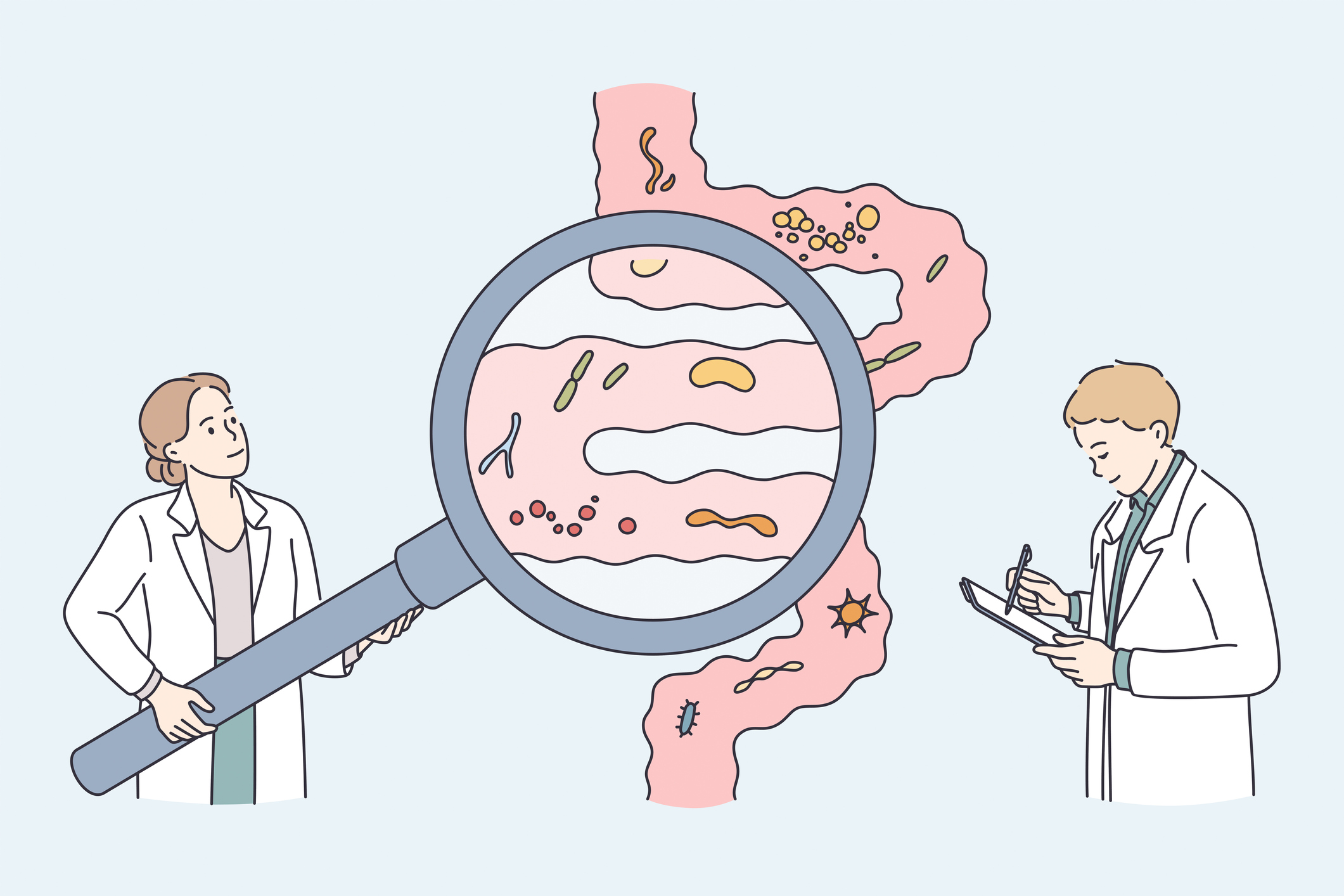
In low birth weight preterm infants, studies have shown beneficial preventive administration of Lactobacillus rhamsosus, selected strains of Lactobacillus acidophilus and Bifidobacterium infantis.
Administration of probiotics promotes proper development of the gastrointestinal tract, prevents the development of mucosal atrophy and reduces the risk of pathogen overgrowth and infection.
In allergic diseases, the administration of probiotics alleviates the symptoms of patients with atopic dermatitis, asthma, allergic rhinitis and food allergy.
In studies, administration of Lactobacillus rhamsosus GG to women with atopic eczema, allergic rhinitis or asthma during pregnancy and breastfeeding reduced the incidence of allergic diseases in children.
Interesting research results at the Pasteur Institute show that Lactobacillus casei has a protective effect against arthritis (inflammatory joint disease).
Another double-blind study on healthy volunteers found that when Lactobacillus salivarius was administered, the amount of immune system defence cells increased.
Immunological parameters were shown to improve, stool was richer in lactobacilli and stool emptying frequency improved.
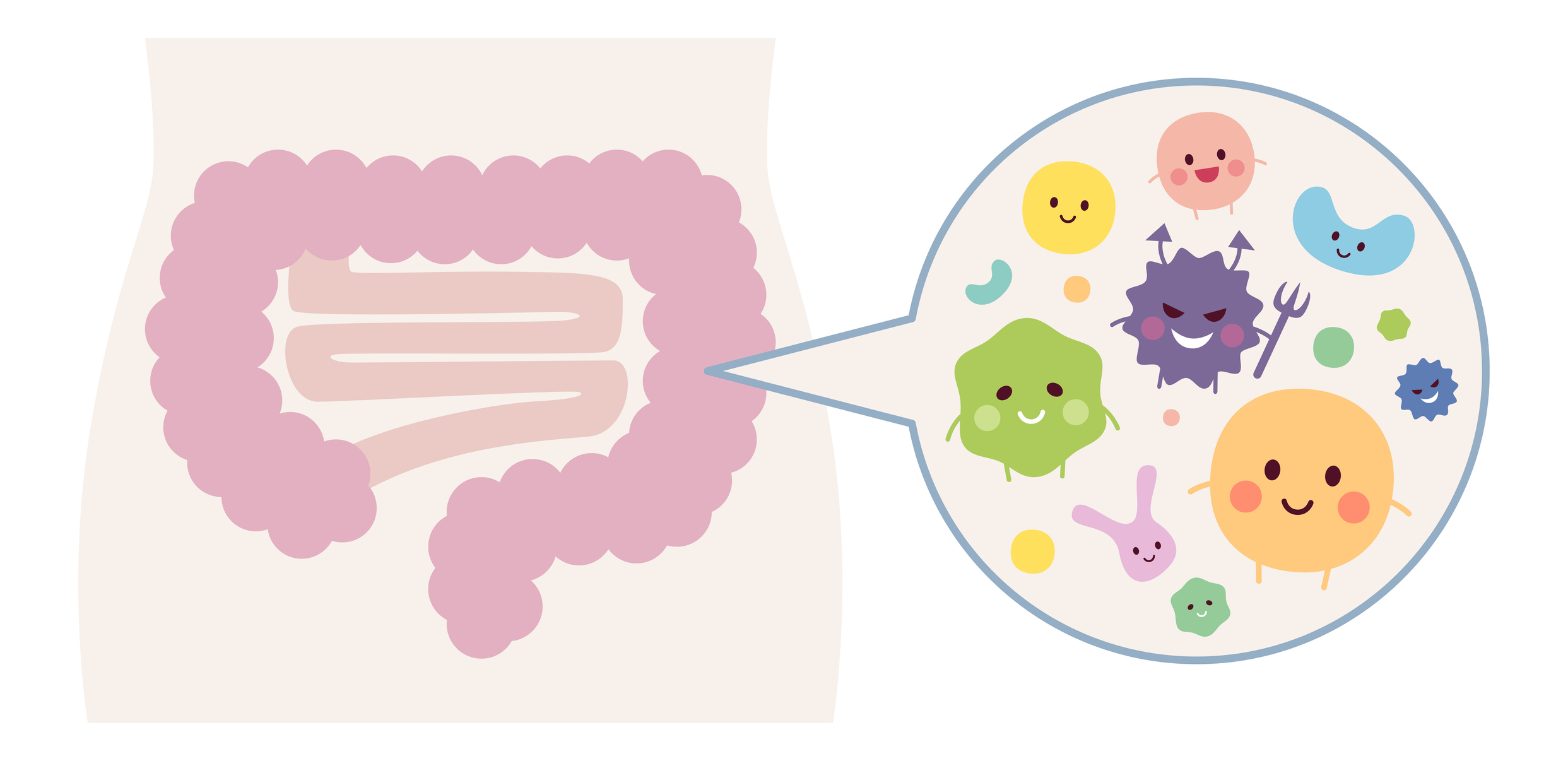
In scientific circles, the prevailing opinion is that bacteria play an important role in, for example, the process of the formation and development of colon cancer.
Lactobacilli are among the bacteria whose protective action of lactic acid inhibits the growth and activity of the unwanted toxic products of certain gut microbes.
These products may include substances that act in the body as carcinogens or promoters (enhancers) of undesirable processes.
Probiotic bacteria are antimutagenic and inhibit the formation and growth of abnormal cells.
In Helicobacter pylori infection, the protective effect of lactobacilli on this well-known and widespread infection has been confirmed. Lactobacillus salivarius, Lactobacillus acidophilus and L. johnsonii inhibit colonisation of the gastric mucosa by H. pylori.
In a study where patients with H. pylori infection received Lactobacillus acidophilus or Lactobacillus johnsonii together with antibiotics, the results were better compared to a group of patients who received antibiotics and placebo alone.
A reduction in gastric mucosal inflammation and a higher eradication rate were observed.
The use of lactobacilli is emerging in the prevention and treatment of diarrhoea, also based on the results of several clinical trials. Lactic acid bacteria modify the intestinal microflora and contribute to the elimination of dysmicrobia.
Through their enzymatic activity, they try to influence the metabolites that cause diarrhoea.
Lactobacilli, as well as other probiotic bacteria, are also beneficial in the prevention of urinary tract infections, recurrent infections of the urogenital tract and infections in patients with urinary catheters.
Interesting resources
Related










